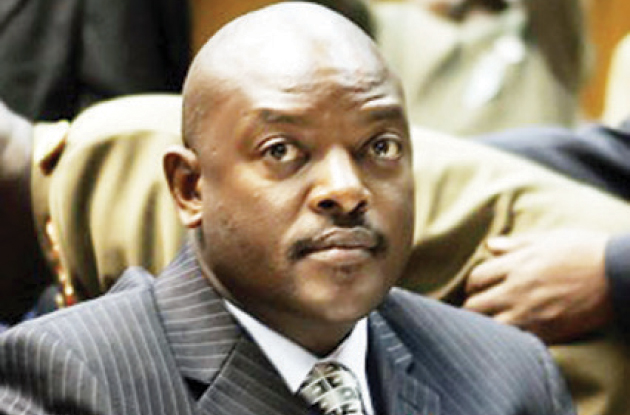‘UN ill-prepared for Burundi trouble’

New York – A confidential UN memo to the Security Council warns that a proposed peacekeeping force for Burundi would be unable to quell large-scale violence in the conflict-wracked African country.
The memo sent by UN peacekeeping chief Herve Ladsous advised council members last week to travel to Bujumbura for urgent talks on the crisis over President Pierre Nkurunziza’s election to a third term.
“A truly worst-case scenario will result in a scale of violence beyond the United Nations’ capacity to protect,” said the memo obtained by reporters on Tuesday.
The document outlines three scenarios including a continuation of the current level of violence, an escalation and finally, all-out war with fighting along ethnic lines.
“United Nations peacekeeping is limited in its ability to address significant violence against civilians, even violence amounting to genocide where it lacks a political framework or the strategic consent of the host-nation and/or the main parties in the conflict,” the memo said.
Burundi has been sliding deeper into violence since Nkurunziza announced his intention to run in elections in July, which he went on to win.
Hundreds have died in the violence and tens of thousands have fled to neighbouring countries out of fear of a return to all-out war. Around 300,000 people were killed in the 1993-2005 civil war in Burundi.
Bujumbura has rejected a proposed 5,000-strong African Union contingent to halt the violence, calling it an “invasion” force. Nkurunziza last month called on Burundians to “stand up to fight” if AU troops set foot on Burundian soil without permission.
Uganda is seeking to mediate talks between the government and the opposition but Nkurunziza refused to take part after a first meeting on December 28.
Meanwhile, German Nazi hunter Beate Klarsfeld said on Monday she fears “the worst” for Burundi if “massacres” linked to the political crisis in the strife-torn African country continue.
“The political crisis that Burundi is going through could degenerate into a humanitarian catastrophe,” Klarsfeld, who is a special envoy for the UN cultural body Unesco, said in a statement as she arrived in the Burundian capital Bujumbura.
“The massacres that have been perpetrated in 2015 portend the worst,” she said.
Her schedule has not been announced, but she had said she would travel to “Burundi, a country whose population has already suffered civil wars, in order to primarily launch an anguished appeal for respect of human life.”
Klarsfeld appealed to the country’s young people “to make the choice for peace and dialogue so that there is no repeat of the horrors of the past that Burundi has already suffered,” she said in the statement, issued in French and received in Nairobi.
Klarsfeld called for a resumption of peace talks “to allow reconciliation, national unity and to put an end as soon as possible to blind killings, targeted assassinations, coups and the multiplication of crimes of an ethnic character.”
The small central African country descended into bloodshed in April when Burundian President Pierre Nkurunziza announced his intention to run for a controversial third term in a July election that he went on to win. The country is still recovering from an ethnically-charged civil war between majority Hutus and minority Tutsis, which cost an estimated 300,000 lives between 1993 and 2006.
Klarsfeld, 76, has tracked down a number of Nazi war criminals with her French lawyer husband Serge.
In one of their most high-profile cases, the Klarsfelds found the notorious Nazi war criminal Klaus Barbie in the early 1970s.
In October, Serge and Beate Klarsfeld were named as Unesco Honorary Ambassadors and Special Envoys for Education about the Holocaust and the Prevention of Genocide. – AFP











Comments